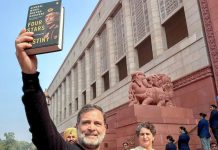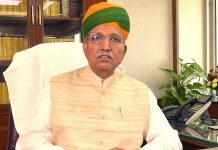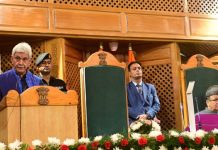Incumbent AAP faces a tough triangular contest as BJP emerges as the main challenger amid Congress’s spirited bid to revive its fortunes in the national capital. A report by Nitin Mahajan
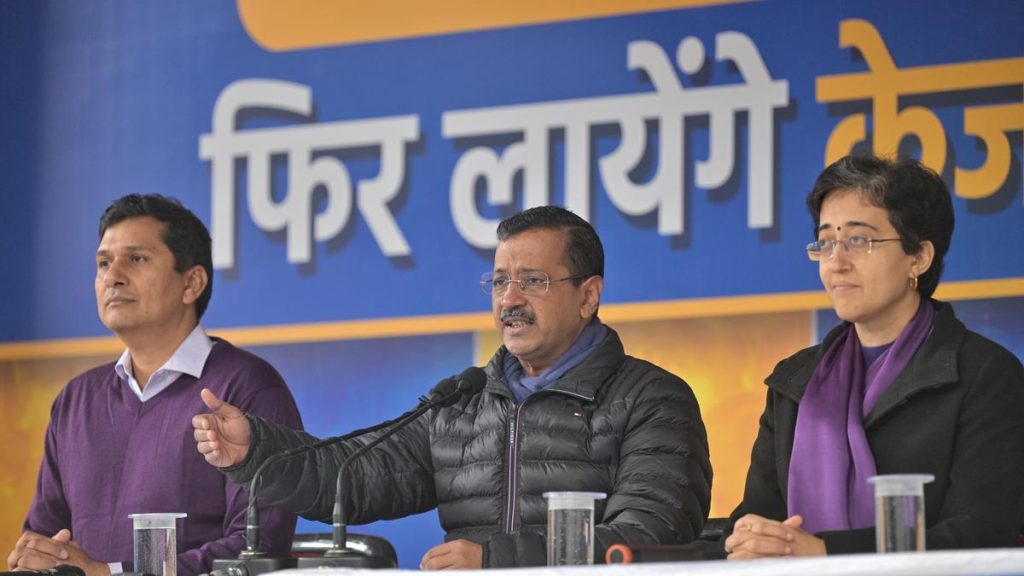
The forthcoming Legislative Assembly contest in the national capital is being keenly observed in political circles. At stake is the political future of former Delhi chief minister and Aam Aadmi Party (AAP) convenor Arvind Kejriwal, who has risen from grassroots and enabled the party to secure a “national” tag in only about a decade’s time.
Delhi is considered to be the power centre of AAP, from where the party began its political journey. However, over the past few years, the nation’s youngest political party has been facing a tough time as several of its ministers and top leaders have been battling serious allegations of corruption. Several of its senior leaders, including Kejriwal, Manish Sisodia, Satyendar Jain and Sanjay Singh, have faced extensive grilling by the investigative agencies and judicial custody over these past months.
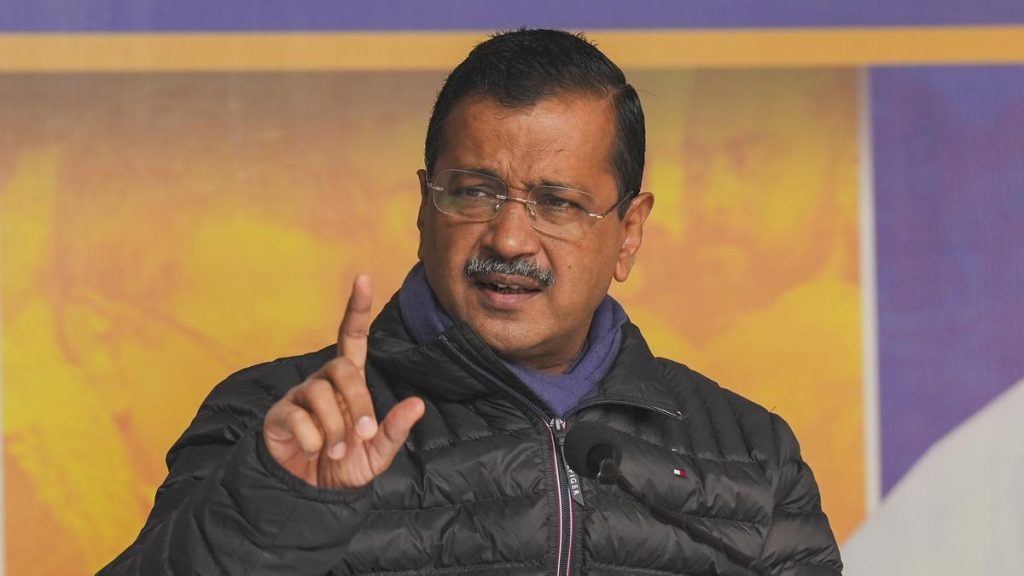
Delhi is considered to be the power centre of AAP, from where the party began its political journey. However, over the past few years, the nation’s youngest political party has been facing a tough time as several of its ministers and top leaders have been battling serious allegations of corruption. Several of its senior leaders, including Kejriwal, Manish Sisodia, Satyendar Jain and Sanjay Singh, have faced extensive grilling by the investigative agencies and judicial custody at different times over the past few months.
Winning Delhi is crucial for Kejriwal and AAP as they want to remove the perception that the party is in any way linked to corruption. A victory will also ensure that the party would project it as an endorsement by voters and hence show that they still enjoy the confidence of masses and that cases against them are all fabricated.
A win in Delhi would also be a significant morale booster for the party, which can be projected as an endorsement for the AAP’s governance model.
The AAP government has implemented several initiatives such as the Mohalla Clinics, which provide free healthcare services to residents. It has also introduced free bus transit for women, which has been a popular move. A win in Delhi would allow Kejriwal to continue and expand these initiatives.
Also, the AAP’s victory in Delhi would be a significant blow to the BJP, which has been trying to make inroads into the national capital. The BJP has been critical of Kejriwal’s governance, and a loss here would be a major setback for the party.
On the other hand, the AAP’s loss in Delhi would be a major blow to his personal reputation and could potentially harm Kejriwal’s national ambitions.
With the Delhi election being a high-stakes battle, Kejriwal is not leaving any stone unturned to ensure a win for the AAP.
Fearing heavy anti-incumbency, the Arvind Kejriwal-led Aam Aadmi Party has announced several schemes promising freebies to various sections of society in an attempt to consolidate its vote base in the forthcoming polls.
The former Delhi Chief Minister has announced Pujari Granthi Samman Yojana, Sanjivini Yojana and Mahila Samman Yojana aimed to woo various sections of the society. Under the Pujari Granthi Samman Yojana, the AAP has proposed to provide a salary of Rs 18,000 to all temple pujaris and gurdwara granthis in the city.
Under Sanjivini Yojana, all senior citizens of the national capital have been promised free medical treatment in all hospitals and while the Mahila Samman Yojana proposes grants worth Rs 2,100 every month to all women citizens, respectively. The only catch being that the voters of the city need to re-elect the Kejriwal-led party to see the implementation of these schemes.
Over the past few weeks, ever since the AAP convener Arvind Kejriwal started to address rallies and meetings, the party has changed its strategy after getting ground level feedback and is now promising more freebies to the voters, sources said.
The Kejriwal-led outfit believes that these freebies will play a pivotal role in securing victory in the upcoming polls.
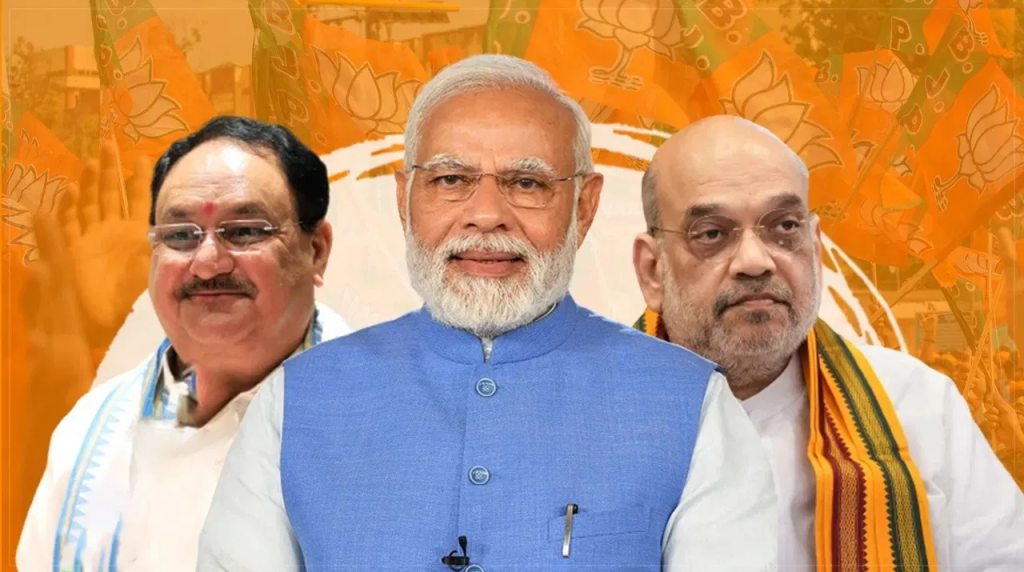
Meanwhile, the Bharatiya Janata Party (BJP) appears to be struggling with a lack of suitable leadership to effectively challenge Kejriwal. Many perceive the party’s alleged attempts to influence the office of Delhi’s Lieutenant Governor (LG) VK Saxena as part of its strategy to counter the AAP-led government.
The AAP government has accused the Delhi LG of interfering in the city’s governance and trying to undermine its efforts to implement welfare measures, including free bus travel for women and marshals in buses. The party has also alleged that the LG is working at the behest of the Central government to destabilize the AAP-led government in Delhi.
Meanwhile, as the standoff continues, Delhi’s citizens are bearing the brunt as AAP claimed that implementation of several schemes has been delayed due to this interference.
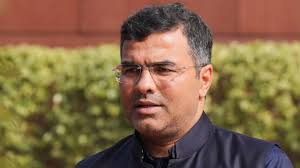
The BJP’s dilemma is that it doesn’t have any leaders in the local unit to take on Kejriwal, hence the need to go after AAP through the LG, sources said. Interestingly, unlike former MPs like Parvesh Verma and Ramesh Bidhuri, senior saffron leaders from the city have continued to stay away from the contest, apparently fearing an electoral loss at the hands of Kejriwal.
The BJP has been out of power in the Delhi Assembly since December 1998, when then Chief Minister Sushma Swaraj lost to the Congress, which brought Sheila Dikshit to power. Dikshit went on to lead the capital for three consecutive terms.
With ongoing allegations and intensified attacks against the Aam Aadmi Party over the excise policy corruption issue, the BJP’s efforts are clearly focused on tarnishing AAP’s carefully cultivated clean image ahead of the Assembly polls in the national capital.
The BJP is targeting AAP over excise policy and liberalisation of liquor sales, an emotional issue, as the saffron unit feels that it can lead to an overwhelming support among the women voters in the national capital.
“Alcoholism, domestic violence and crime related to alcohol is considered as a major reason for women to support a more restrictive excise policy. And by establishing that the Kejriwal government is trying to liberalise the excise regime, the saffron party is trying to win over the women voters to its camp,” a senior BJP leader said.
The party feels that if it is able to establish a perception that the AAP government was indulging in corrupt practices, it would be able to wrest an advantage ahead of the crucial polls.
The 70-member Delhi Assembly is scheduled to go for polls on February 5 and the results will be announced on February 8.
Challenges loom over AAP
For AAP, the forthcoming electoral contest will not be easy as Delhi Congress leaders have decided to reclaim the city, where it ruled for three consecutive terms in the past. The grand old party has decided to put up strong candidates against several top leaders of AAP, in an effort to regain political respect and lost ground in the national capital. This essentially means that the city will witness triangular contests on several seats, potentially compounding AAP’s challenges in the national capital.
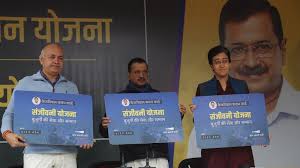
In this new political manoeuvring, Kejriwal is now facing a tough triangular contest in the New Delhi Assembly constituency.
The most interesting and tough contest is being played out in the New Delhi Assembly constituency, where AAP convenor Kejriwal is pitted against the sons of two former chief ministers of Delhi. While the Congress has fielded Sheila Dikshit’s son, Sandeep Dikshit, the BJP has put up Sahib Singh Verma’s son, Parvesh Verma.
Kejriwal has triumphed in three consecutive elections from New Delhi—2013, 2015, and 2020—with commanding margins. However, AAP insiders reveal that following the BJP and Congress announcements of their candidates, some within the party believe a ‘safe’ seat for the former CM might need to be identified in the national capital. “The New Delhi area is cosmopolitan in nature, where the voters are well educated and upwardly mobile. The party is trying to shortlist another constituency where the percentage of minority population is higher and may be considered safe for the party leader,” sources added.
If Kejriwal suffers a loss in the forthcoming Assembly polls, it is expected to create political roadblock for the AAP supremo as his claim to the Chief Minister’s post will weaken. Hence, the need to look for a safe seat, sources added.
In the closely fought battle, Sandeep Dikshit is trying to reclaim the legacy of the former Chief Minister and his mother, who had represented the area in the Assembly repeatedly. By fielding Sandeep, Congress has sent a clear message in Delhi Assembly elections that it wants to reclaim the legacy of the party stalwart, Sheila Dikshit. This move shows the seriousness of the party to reclaim power in the national capital.
In 2013, Aam Aadmi Party led by Arvind Kejriwal defeated Sheila Dikshit to become the chief minister of Delhi.
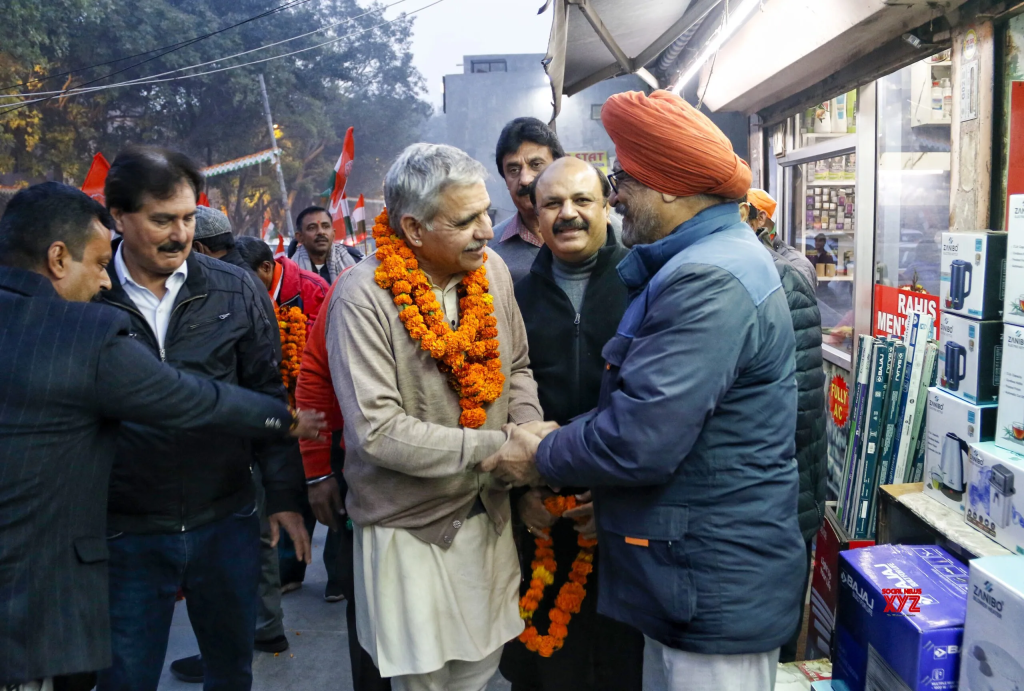
For Sandeep Dikshit, and the Delhi Pradesh Congress Committee, the fight is personal at some levels. The Congress is now pointing out the flawed way that Kejriwal targeted the tallest leader in Delhi, Sheila Dikshit.
It must be pointed out that the massive public outrage fuelled by Kejriwal’s movement had almost derailed the political careers of several of Sheila Dikshit’s proteges including Ajay Maken, Arwinder Singh Lovely, Raj Kumar Chauhan besides Sandeep Dikshit.
Senior Congress leaders have repeatedly pointed out that though there was no case against Sheila Dikshit, the duo of Kejriwal and Anna Hazare had steadfastly continued to demand the resignation of Dikshit and came to power riding on these allegations.
Sources stated that there is a section of leadership in the Congress who want to utilize this opportunity to regain the lost ground in the national capital. “Instead of backing Kejriwal in the name of opposition unity – both Congress and the AAP are members of the INDIA bloc, an opposition front — the focus of the party high command should have been on distancing itself from the AAP leader,” sources said.
They pointed out that despite being in government twice, the AAP has not been able to prove any charges that it had levelled against Dikshit or her ministers.
“Sheila Dikshit, perceived as one of the best CMs in our country, had to face repeated allegations of corruption by Kejriwal,” sources added.
There is anger among the party cadre that while the Congress ceded its space in Delhi and Punjab to the AAP, its top leadership is seemingly unwilling to fight back and regain its rightful share in these regions.
The BJP is also in no mood to give a walkover to Kejriwal and his candidates. A similar triangular contest is also being witnessed in Kalkaji constituency of incumbent CM Atishi Marlena. She is facing senior Congress leader Alka Lamba, while the BJP has fielded Ramesh Bidhuri from the seat. Both these candidates are grassroots leaders and are street fighters, making it tough for the CM to get elected again.
Over the years, AAP has seen a decline in winning seats in 2020 as compared to 2015. The party won 67 seats in Delhi for the year 2015 and 62 in 2020.
And the BJP and the Congress are trying hard to bring down the AAP numbers by a significant level this time in an effort to have a shot at forming a government in the national capital.
Rumblings in BJP
Though the BJP has been trying to project a united face, all is not well in the saffron camp. The anger among BJP cadre stems from the party’s decision to grant tickets to outsiders, including former AAP minister Kailash Gehlot and Congress turncoat Tarwinder Singh Marwah, who recently joined the party. This move is seen as a snub to loyal party workers who have been toiling for years to strengthen the party’s grassroots presence.
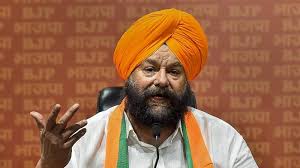
Many BJP cadres feel that these newcomers are being given preference over them, despite their own hard work and dedication to the party. This perception of favoritism has led to resentment among the party’s rank and file. Party workers feel that they are being overlooked, with money and influence playing a significant role in the selection of candidates.
Furthermore, the BJP’s emphasis on attracting high-profile leaders from other parties has created a sense of unease among its own leaders and workers. Some feel that the party is compromising its core values and ideology by inducting outsiders who may not share its vision. According to them, these recent entrants have no real connection with the party or its local leadership.
The BJP’s leadership, however, is claiming that the inclusion of outsiders is a strategic move to expand the party’s base and appeal to a broader audience. Nevertheless, the discontent among BJP cadres is a significant challenge for the party to address as it prepares for the crucial electoral battle ahead.

